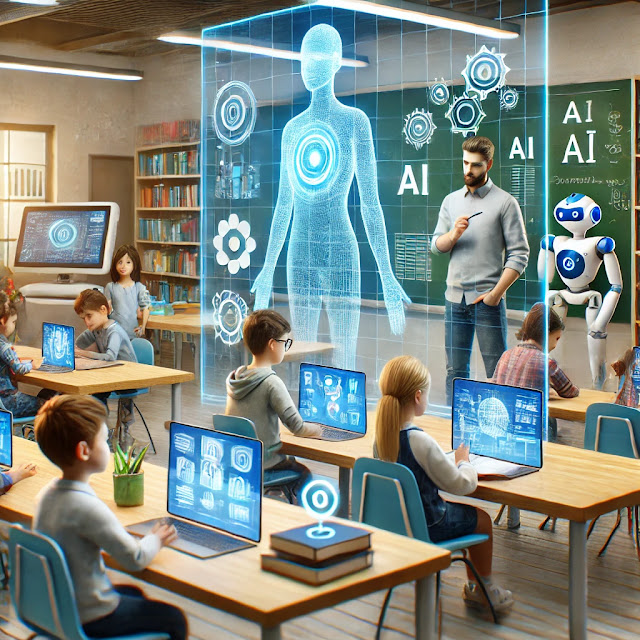The Role of AI in Education
Artificial Intelligence (AI) is transforming education by enhancing teaching methods, personalizing learning experiences, and improving administrative efficiency. AI-powered tools are reshaping how students learn and how educators teach, making education more accessible, efficient, and engaging.
1. Personalized Learning
AI-driven platforms analyze students' learning patterns and adapt lessons based on their progress. This allows for:
- Customized lesson plans catering to individual strengths and weaknesses.
- Adaptive learning software that adjusts difficulty levels based on performance.
- AI tutors providing real-time feedback and assistance.
2. Smart Content Creation
AI helps in generating and curating educational materials, including:
- Digital textbooks and interactive study guides.
- Automated summarization of key concepts.
- AI-generated quizzes and practice tests tailored to student needs.
3. AI-Powered Virtual Tutors & Assistants
AI-driven chatbots and virtual assistants assist students by:
- Answering common queries instantly.
- Providing explanations for complex topics.
- Offering guidance for exam preparation and assignments.
4. Efficient Administrative Tasks
AI streamlines administrative processes, reducing workload for educators and institutions:
- Automated grading of tests and assignments.
- Smart scheduling and attendance tracking.
- Data analysis for student performance and institutional planning.
5. Enhancing Accessibility & Inclusivity
AI supports students with diverse needs through:
- Speech-to-text and text-to-speech tools for differently-abled learners.
- Real-time translation for students speaking different languages.
- AI-powered learning tools that accommodate various learning styles.
6. Gamification & Immersive Learning
AI integrates with technologies like Virtual Reality (VR) and Augmented Reality (AR) to create:
- Interactive and engaging learning experiences.
- Simulated environments for hands-on learning (e.g., science experiments, medical training).
7. AI in Career Guidance & Skill Development
AI helps students make informed career choices by:
- Assessing skills and suggesting suitable career paths.
- Offering training programs and certification recommendations.
- Predicting job market trends for future opportunities.
Challenges & Ethical Considerations
While AI offers numerous benefits, challenges remain:
- Data privacy concerns and ethical use of student information.
- The need for human oversight to ensure balanced learning.
- Risk of over-reliance on technology, reducing critical thinking skills.
Conclusion
AI is revolutionizing education by making learning more efficient, personalized, and inclusive. However, it should complement rather than replace human educators, ensuring a balanced approach that fosters creativity, critical thinking, and holistic development in students.


No comments:
Post a Comment